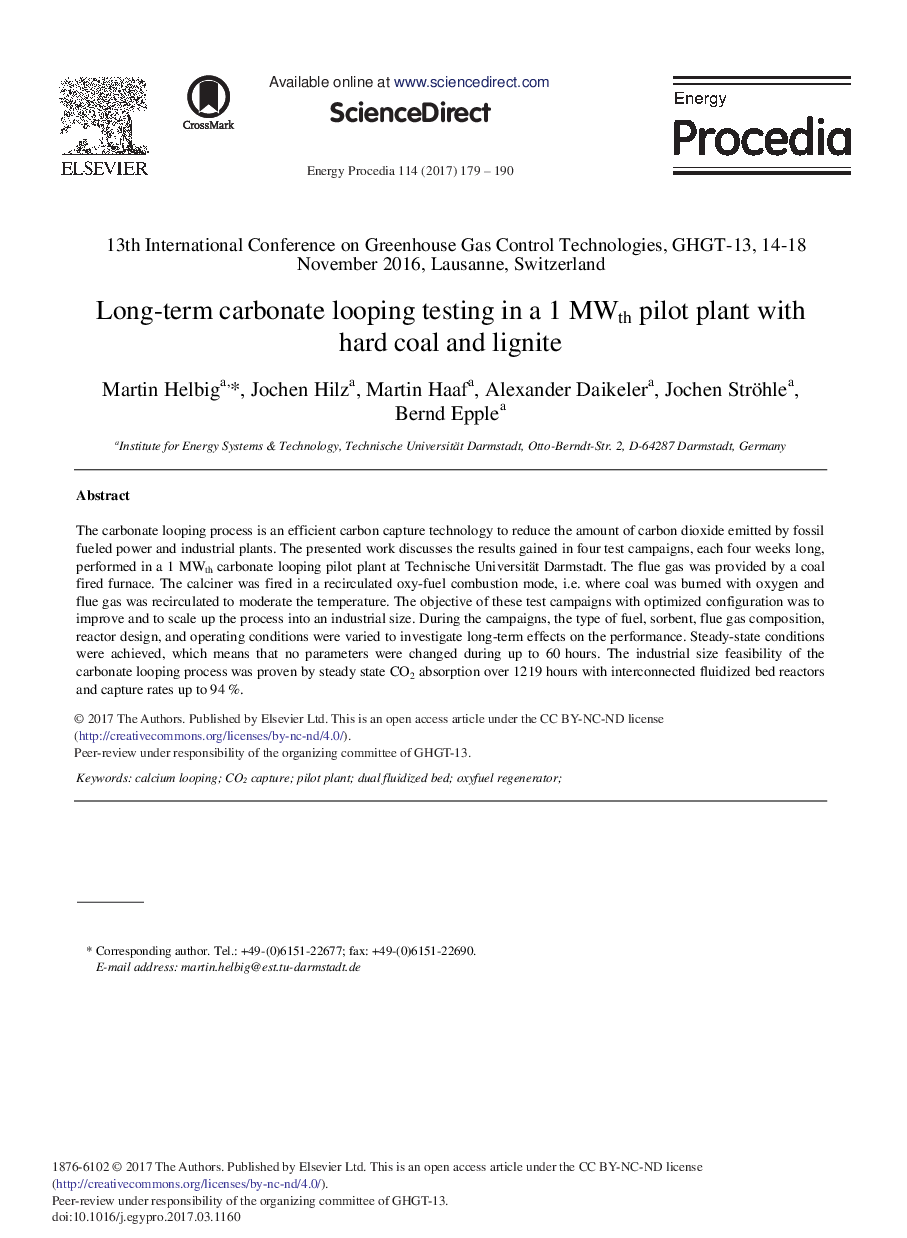| Article ID | Journal | Published Year | Pages | File Type |
|---|---|---|---|---|
| 5445434 | Energy Procedia | 2017 | 12 Pages |
Abstract
The carbonate looping process is an efficient carbon capture technology to reduce the amount of carbon dioxide emitted by fossil fueled power and industrial plants. The presented work discusses the results gained in four test campaigns, each four weeks long, performed in a 1 MWth carbonate looping pilot plant at Technische Universität Darmstadt. The flue gas was provided by a coal fired furnace. The calciner was fired in a recirculated oxy-fuel combustion mode, i.e. where coal was burned with oxygen and flue gas was recirculated to moderate the temperature. The objective of these test campaigns with optimized configuration was to improve and to scale up the process into an industrial size. During the campaigns, the type of fuel, sorbent, flue gas composition, reactor design, and operating conditions were varied to investigate long-term effects on the performance. Steady-state conditions were achieved, which means that no parameters were changed during up to 60 hours. The industrial size feasibility of the carbonate looping process was proven by steady state CO2 absorption over 1219Â hours with interconnected fluidized bed reactors and capture rates up to 94%.
Related Topics
Physical Sciences and Engineering
Energy
Energy (General)
Authors
Martin Helbig, Jochen Hilz, Martin Haaf, Alexander Daikeler, Jochen Ströhle, Bernd Epple,
